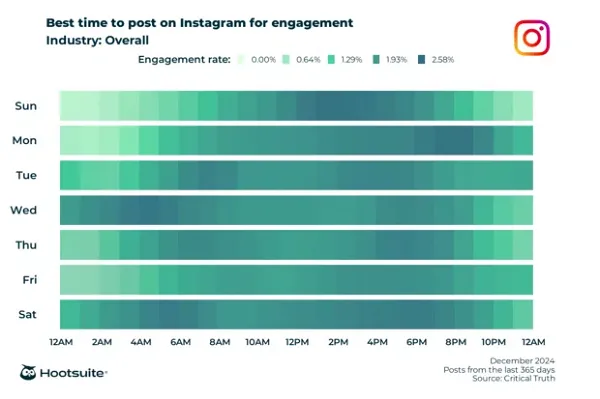Recently Demandbase and marketing operations (MOPs) training provider Highway Education released their “The State of Marketing Operations: 2022” report. It includes insights from various marketing operations luminaries like Darrell Alfsono and Sara McNamara who are certainly aware of the challenges facing professionals in this field. One of the report’s important takeaways is that marketing operations practitioners are in high demand, and there’s a real need for more formal training opportunities.
As I see it, one way that companies looking for marketing operations talent can better find suitable people to fill operations roles is to broaden their perspective of potential candidates – especially during the tight labor market caused by the “Great Resignation.” Many people have what I consider a narrow view of who to recruit, and that’s to their detriment.
Marketing automation’s prominence
It is not surprising that many equate marketing operations with marketing automation; marketing automation platforms offer a lot of what marketing departments need in the digital space. Such platforms are valuable in many situations throughout B2B, B2C, and D2C contexts, and all sorts of teams throughout marketing, sales, and other departments certainly have a need for marketing automation.
Further, since marketing automation platforms are core tech stack components that integrate with many other systems, it seems logical that marketing automation teams would serve as a core and foundational component of any marketing department’s operations. In fact, as robust and powerful platforms, they could certainly serve as a backbone system for smaller organizations for most – if not all – marketing initiatives.
Beyond marketing automation
However, there are plenty of practitioners throughout marketing who develop both the requisite technical skills and business acumen to serve as competent operational practitioners. I agree with Knak Co-Founder and CEO Pierce Ujjainwalla, who was quoted in the report as saying: “We all have found our way into MOps some random way.”
So, why is the field so focused on people who have marketing automation experience?
Fixating on marketing automation causes blind spots for the marketing operations field. I’ve argued that marketing operations teams should pay more attention to websites. The web channel offers many opportunities for marketing departments, and the acumen needed for operating marketing automation platforms, analytic tools, and related systems actually translates well over to content management systems (CMSs).
Further, by looking beyond email, texts, and messaging to the web channel, operations folks could have a better view of other channels. With a more consistent focus on a broader perspective, operations folks can more holistically see possibilities to orchestrate multi-channel campaigns. Wouldn’t that impress marketing leadership and the C-suite?
Get the daily newsletter digital marketers rely on.
Desirable skills come from several backgrounds
Ashley Blanchard, manager, marketing automation and product management at Adobe, is an example of a marketing operations and technology practitioner who came from a web background instead of a marketing automation one. When I asked Blanchard if I could mention her, she replied: “I think we need more web developers to convert to marketing technology and operations!”
I don’t mean to toot my own horn, but I am also one of those people who doesn’t have a significant background mainly performing in a marketing automation role.
Blanchard spent a lot of her time developing and maintaining integrations and data flows as a web developer. I was more of a website administrator who also worked closely with software developers to build custom software ranging from CMS extensions to building systems from scratch. We – like automation specialists – have learned and operated with project management, fought many figurative fires, negotiated with legal and security, had to comply with a regulatory morass tapestry, managed systems users, configured user permission sets, modified functionality, worked with account teams, and collaborated plenty with IT, creative, and other marketing and sales stakeholders.
CMSs integrate with many other systems just like automation platforms. Websites are similarly dependent upon analytics as emails, messaging, paid search, and social media with comparable opportunities for testing and fine tuning. CMSs and web tactics certainly evolve as much as marketing automation does. Thus, there are plenty of ways to develop marketing operations and technology acumen.
Further, Blanchard told me that she feels that system ownership (of any type of platform) requires one to develop and use creative problem solving skills. She adds that this “is the critical skill set anyone in marketing tech needs: how to make a software platform work in an ecosystem to solve complex problems. And there are lots of software platforms being used creatively out there by good candidates.”
As more and more of marketing and sales initiatives grow more digital and technical, specialists from beyond marketing automation develop and use skills that are not only applicable but essential to operations. Thus, marketing leadership, hiring managers, and recruiters should look beyond automation folks for operations roles. I argue that people with websites, paid search, social media, and analytics backgrounds offer just as much potential and, perhaps most importantly, a different perspective than automation specialists.
Read next: Marketing operations talent is suffering burnout and turnover
Cast a wide net
Don’t get me wrong. Marketing automation specialists are a wonderful group of people. They have certainly earned their growing reputation of serving essential marketing functions, but they’re not the only ones capable of fulfilling the demands placed upon marketing operations teams.
One way to address the implications of the current tight marketing operations jobs market like top-heavy teams leaving senior practitioners in the weeds, burned out professionals, long hiring processes, and too much turnover is to cast a broader net when recruiting – just keep the compensation packages growing and improving.
Opinions expressed in this article are those of the guest author and not necessarily MarTech. Staff authors are listed here.








































































